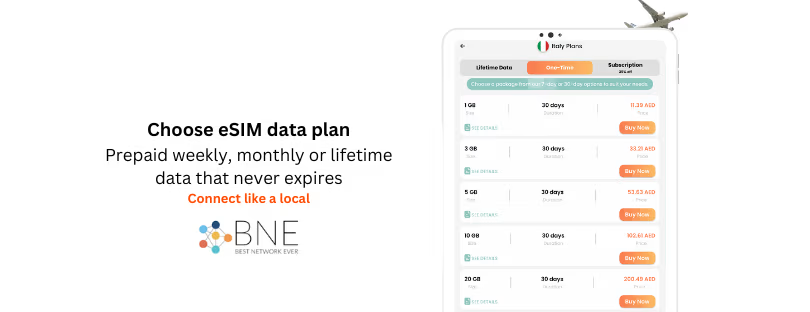
ITB Berlin
ITB Berlin, short for Internationale Tourismus-Börse Berlin, is one of the world’s largest and most influential travel trade shows. Held annually in Berlin, Germany, it brings together travel professionals from across the globe. For over five decades, ITB Berlin has served as a hub for networking, business deals, trend analysis, and industry insights. It covers every aspect of the travel and tourism industry—from destinations and tour operators to airlines, hotels, tech providers, and start-ups.
As global tourism evolves, ITB Berlin remains at the center, helping to shape the future of travel.
Origins and Growth
ITB Berlin began in 1966 with just nine exhibitors from five countries and has since grown into a massive event attracting tens of thousands of visitors and thousands of exhibitors from over 180 countries. It started as part of an overseas import fair but quickly gained momentum and carved out its own identity. Held at Messe Berlin, a massive convention center, ITB now spans several halls, each dedicated to different regions or sectors of the industry.
This growth reflects not just the show’s success but also the globalization of travel. As international tourism boomed in the late 20th century, ITB expanded its reach, becoming a must-attend event for anyone serious about the travel business.
Structure and Participants
ITB Berlin operates over several days, typically in early March. The first few days are reserved for trade visitors—industry professionals, exhibitors, buyers, and media. The final day or two are open to the public, allowing travelers and consumers to explore destinations and travel products.
Exhibitors range from national tourism boards and city tourism offices to travel tech companies, airlines, cruise lines, and hospitality brands. Travel influencers, journalists, bloggers, and industry analysts also attend in large numbers. Governments use the platform to promote national tourism, and companies often unveil new products or announce strategic partnerships.
A hallmark of ITB is its segmented layout. Each hall focuses on a different part of the world or sector. For example, Hall 1.1 might feature African destinations, while another hall focuses on travel technology or LGBTQ+ tourism. This organization allows attendees to navigate the complex landscape of global tourism more easily.
Key Functions of ITB Berlin
-
Networking and Business Development
ITB Berlin is primarily a business platform. Buyers and sellers meet to discuss deals, forge new partnerships, and explore market entry opportunities. It’s where travel agents connect with hotel chains, tour operators sign contracts with destination marketing organizations, and tech firms demonstrate innovations to potential clients. -
Knowledge Sharing and Thought Leadership
ITB Berlin is more than just an exhibition—it’s also a conference. The ITB Berlin Convention runs parallel to the trade show, offering keynotes, panel discussions, and workshops. Topics cover everything from travel sustainability and digital transformation to market trends and traveler behavior. Leading voices in tourism—CEOs, government officials, researchers—use the stage to share insights and shape industry discourse. -
Showcasing Trends and Innovations
One of the most valuable aspects of ITB Berlin is its role as a barometer for the industry. Each year, new travel trends emerge at ITB: the rise of experiential travel, the impact of AI on bookings, or the growth of wellness tourism. Tech companies present tools like AI-driven itinerary planners, virtual reality tours, and blockchain-based booking systems. ITB gives attendees a look at what’s coming next and how to stay competitive. -
Spotlight on Sustainable and Responsible Tourism
In recent years, ITB Berlin has put increasing emphasis on sustainability. The climate crisis and growing traveler awareness have pushed the industry to change. At ITB, sustainability is not a side issue—it’s central. From eco-certifications to carbon offsetting solutions, exhibitors showcase efforts to reduce tourism’s environmental footprint. The convention also hosts discussions on overtourism, community engagement, and regenerative travel models.
Impact on the Global Tourism Industry
ITB Berlin’s global reach means it plays a significant role in setting the agenda for the travel sector. The connections made at ITB can shape tourism trends for years. It’s where destinations can reposition themselves, where innovations are validated, and where emerging markets get international exposure. For many small businesses and developing countries, ITB is a launchpad into global tourism networks.
The data collected and published during the event also influence decision-making across the industry. Market research reports, booking trends, and economic outlooks shared during the convention help businesses plan their strategies.
ITB Berlin 2025
ITB Berlin 2025 is set to reinforce its position as the world’s leading travel trade show, taking place from March 4 to 6 at Messe Berlin. With the global tourism industry in full rebound, ITB Berlin 2025 will focus on innovation, resilience, and sustainability. The event will gather thousands of exhibitors and travel professionals from over 180 countries, offering a comprehensive look at current market trends, emerging travel technologies, and global destination marketing strategies. This year, a strong emphasis will be placed on digital transformation, climate-responsible travel, and the role of artificial intelligence in reshaping the customer journey.
A key highlight of ITB Berlin 2025 is the expanded ITB Convention, featuring high-profile speakers and panels discussing pressing industry issues such as overtourism, workforce shortages, and ESG compliance. Additionally, the trade show will showcase a range of startup innovations and tech solutions that aim to make travel more seamless and sustainable. As hybrid participation options grow, ITB continues to blend in-person networking with digital access, making it easier for global attendees to connect and collaborate. With the growing demand for authentic, ethical, and personalized travel experiences, ITB Berlin 2025 is positioned to shape the next chapter of tourism worldwide.
Here are some tips for getting to ITB Berlin by public transportation:
- The Messe Nord/ICC, Westkreuz, and Messe Süd stations are all within walking distance of the exhibition center. You can take the U-Bahn (subway) to Messe Nord/ICC or Westkreuz, or the S-Bahn (city rail) to Messe Süd.
- Several bus lines stop near the exhibition center, including the 100, 109, 149, and 249.
- If you are staying in a hotel in Berlin, you may be able to take a shuttle bus to the exhibition center.
- Taxis are also available, but they can be expensive.
Accommodation Tips:
- Book your accommodations early
- Choose a hotel in or near the exhibition center
- Consider staying in a hostel or capsule hotel
- Book a last-minute deal if you are flexible
- Look for hotels that offer breakfast included
Itinerary Tips:
- Plan your itinerary in advance
- Consider attending the ITB Berlin Convention
- Explore Berlin’s many attractions
- Sample the city’s culinary delights
- Don’t forget to bargain for souvenirs
- Enjoy your time in Berlin!
See you in Berlin?












